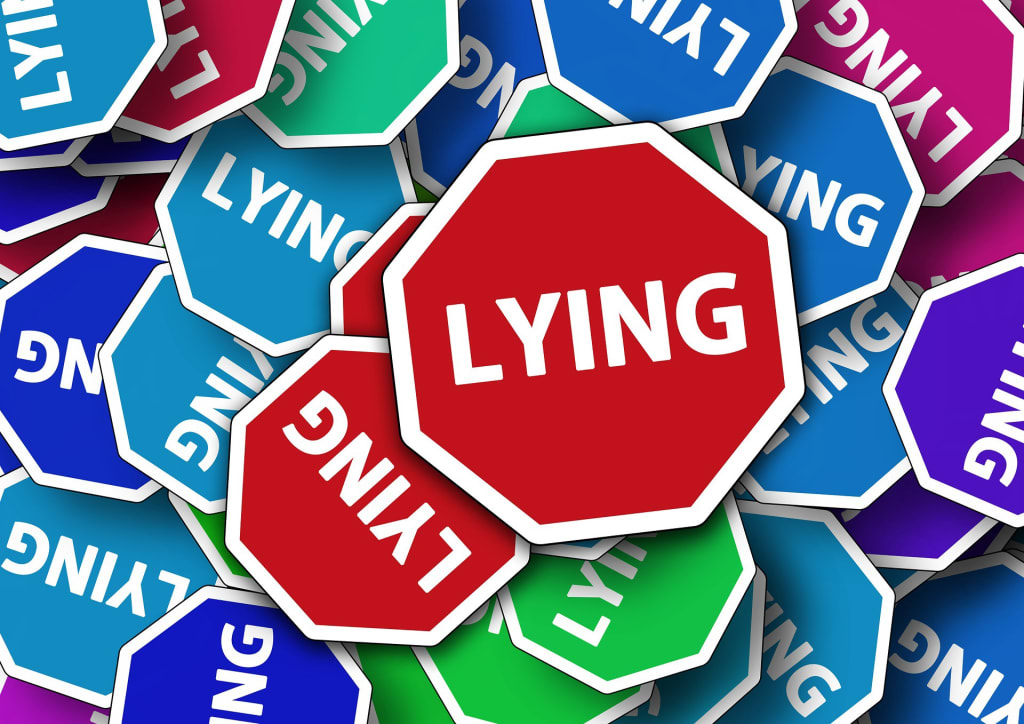To Be Honest
It Doesn’t Mean Someone is Lying. Honestly, It Doesn’t

There are a number of specific phrases that lying persons are said to use when exaggerating the truthfulness of their spoken or written words. One of the most commonly mentioned of these is the phrase “to be honest.” The use of this particular phrase reveals an overemphasis on truthfulness which is often listed as an indicator that someone is lying. Recently a friend called me out during a discussion for using the phrase, and suggested I was likely lying because of it. I am no different than any other human being alive, and cannot claim that I never have, or never do, lie, however in this case I was being perfectly honest (and there I go again overemphasizing my truthfulness, am I lying about not lying? No I am not.) Later I caught myself using the phrase again in an email and again, in that particular case, I was not lying, or dissembling, or misleading in any way.
The Evidence
I had heard this bit of lie spotting wisdom before and never thought to question it. It sounds right after all, doesn’t it? It makes intuitive sense. Certainly there must be scads of evidence showing the relationship between lying and the use of phrases like to be honest that overemphasize truthfulness. Therefore, I figured a quick internet search followed by a glance at one or two papers in the relevant literature, and I would have confirmation. That said, caution was in order. A previous foray into the realm of psychology/behavioral science had led me to the conclusion that the importance and positive impact of eye contact in all manner of human interactions had been completely misrepresented. It turned out that the primary literature in the field was actually all over the place on that question. In that case however there was much literature to be reviewed, and I was actually surprised to discover exactly how much really excellent work had been done to attack the question from a variety of angles.
It quickly became apparent that this was not the case in this instance. A basic internet search on the topic revealed example after example after example of this being cited as a thing, and as an indicator that someone is lying, but where references were cited (mostly never) they linked to papers that either did not support the contention, or had nothing at all to do with the assertion at hand. A pattern emerged in which once again our good friends at the FBI (see the eye contact piece for more on this) appear to be sources of misinformation or outright lies (hah!) about a so called tell for liars. A recent example is a 2016 event on wall street at which FBI agent David Chaves presented a list of 8 traits that supposedly indicate someone is lying. No doubt he thought himself extremely clever for talking about liars while visiting Wall Street, but while his presentation was heavy on “facts” asserted, it was light (empty in fact) on references cited. He also repeated the same eye contact myth I had just debunked, though in his defense he altered it and made it less specific by not listing an exact percentage of eye contact needed and simply saying one needed to sit “face to face” with a person to tell if they were lying.
There is one paper in the field of lie research that deserves mention as it is widely cited though often misapplied. It has nothing to say about the use of specific phrases like “to be honest”, and focuses entirely on why lie catchers fail so often when they rely on behavioral clues to spot lies. Though I admit an ignorance of the specific statistical models used to draw the conclusions and can only trust (hah!) they were accurate, the results suggest that
“intuitive notions about deception are more accurate than explicit knowledge and that lie detection is more readily improved by increasing behavioral differences between liars and truth tellers than by informing lie-catchers of valid cues to deception.” In other words behavioral tells are not reliable as such no matter how well informed we are about them and how much we may be on the look out for them, but we can often intuit lying in any case.
How we might achieve this intuitive notion of someone lying to us is anyone’s guess. Call me stupid but wouldn’t we do this through the interpretation of behavioral clues? In any case despite its somewhat contradictory conclusion the paper does suggest that one should not overthink things when it comes to lie detection. There are no universal signs or tells that someone is lying, behavioral or otherwise. Trust your gut instinct. Seriously? That is the conclusion of a widely cited scientific paper in pyschological research, trust your gut? Man, I am in the wrong field.
Authors note: I would caution that you would be wise to avoid the use of the phrases to be honest and honestly in your spoken and written communications. Though the relationship between their use and lying is clearly a myth, the belief in that relationship is all too real. Therefore, you are definitely better off with a different word choice if you don’t want to raise questions as to your own honesty. That sure doesn’t seem fair now does it? What did those words ever do to deserve this? lol!
About the Creator
Everyday Junglist
Practicing mage of the natural sciences (Ph.D. micro/mol bio), Thought middle manager, Everyday Junglist, Boulderer, Cat lover, No tie shoelace user, Humorist, Argan oil aficionado. Occasional LinkedIn & Facebook user






Comments
There are no comments for this story
Be the first to respond and start the conversation.